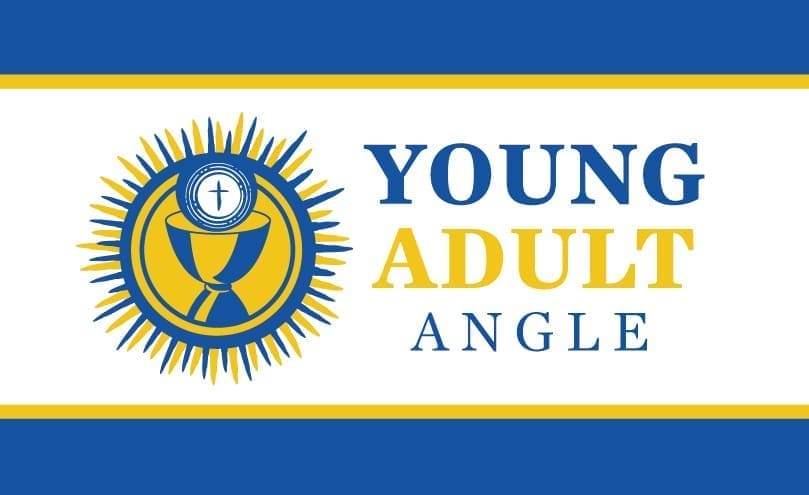
Atlanta
Unveiling the beauty beneath our faults
By ALEXANDER BROWN, Special to the Bulletin | Published September 30, 2022
Soon before I aged into my teens, I grew fascinated with rocks and gemstones. My family had visited a few caverns and impressive geological sites, and I begged my parents to get me a variety of the beautiful specimens.
The different colors, shapes and sizes in addition to the textures and weights in my hand would powerfully strike my senses of sight and touch at the same time. My heart leapt to think that in a huge world of dirt, grime and dust lie precious minerals waiting to be discovered. My mom stopped just shy of buying a rock tumbler before I entered the hurry of high school, but perhaps keeping the mystery of how the hidden pebbles were fully revealed served a greater purpose.

Alex Brown
In searching for what we truly desire, we often have to brush away other things good or bad in order to find it. We ultimately desire the true, the good and the beautiful, and to obtain it we must dismiss the false, the bad and the not-so-beautiful.
In my last column, I explored the reasonableness of starting and building a relationship with God, the perfect, uncreated being from which all existence flows. I promised to dive into the implications of this relationship and how it affects our daily lives.
For context, we all have a sense of evil—things and actions that lack in the perfect good and cause us pain and suffering. We need not look far to see violence, fear, hatred and selfishness that threaten the common good of all humanity. We seem to have a modern difficulty with labeling or identifying certain evils (which I will describe in my next reflection), but this has not invalidated the basic truth that again, we know that some actions are always right no matter what anyone says or believes. In addition, we know there is a courage, honor and virtue for which we are all striving.
Much like knowing rationally that God exists, we can generally conclude that determining good from evil cannot rest solely in the hands of individual humans and societies. If so, all of the past grave offenses against humankind could be explained by a might-makes-right, consequence centered and non-consistent measure of human actions. Genocide, forced famines, human sacrifice, personal assault—there are plenty of examples. Where then do we look to see the moral compass to guide our human actions? To this same God whom we can know from reason alone.
God also is the divine lawgiver from which perfect justice—as well as perfect mercy—flows. If it were anyone less, it could shift, ebb and flow with each culture and moment in history. It would ignore our shared humanity that unites us in dignity and protects us under the eternal law given that is true for all of us throughout all time.
The fact is, if we are honestly seeking to live a fulfilling, joyful, peace-filled life, we must get rid of that which stands in our way. Enter the Good News: the Old English “godspel” or “good story” from which we get the word “Gospel, the life restoring message of Jesus of Nazareth. If you would, let me reiterate the invitation to giving religious terms a fresh chance. The “Evangelion” (the Greek term for Gospel) is a paradigm shift in our daily existence. This is a prime result of that relationship with God. We, the beautiful and precious creations marred by the dirt of our misdeeds, are smoothed, cleaned and perfected by the churning of grace within our hearts.
Years went by in my life where I struggled with a particular set of evils. I was constantly looking for fulfillment where I ultimately would never find it. In scriptural language, I was a slave to sin bound by empty desires, lust, greed and selfishness. Because of God’s perfect mercy, I now live a more fulfilled and more fulfilling life. Do I still struggle in different ways? Absolutely, and by God’s perfect justice I more clearly see why such sin hurts me. I also see why God as goodness itself desires me—a beloved son—to not be so marred.
Two ultimate facts are that God is love (1 Jn 4:8), and as his beloved, he desires our good more than anything (Jn 3:16). As a result of this uncompromising love, I had to let go of a number of things and actions. But these things and actions were ultimately meaningless and lacking in fulfillment.
With their corroding influence cleared away, the parts of me that are significant and beautiful, that which makes the individual I am, began to shine forth. I had to cooperate with the grace that loved me more than I had been loving myself. From the Catechism of the Catholic Church (quoting St. Augustine and the first Letter of John), “God created us without us: but he did not will to save us without us.”
To receive his mercy, we must admit our faults. “If we say we have no sin, we deceive ourselves, and the truth is not in us. If we confess our sins, he is faithful and just, and will forgive our sins and cleanse us from all unrighteousness.”
In my living relationship with God, I am saved from evil, understand what makes for true joy and peace, and live a fruitful life. This is what the name Jesus—Yeshua (God saves) means. When we say Jesus, the eternal, divine second person of the Trinity, we mean that God entered our existence to make us more like himself.
St. Athanasius told us about the profound mystery of the Incarnation. He tells us to repent not just to remind us how bad what we do can be, but how good we could and will be.
I used to be taken aback by hearing “I love Jesus,” in the same way I felt left out hearing of any other love that I did not share. It may help (as it helped me) to think of it as “I love goodness, I love that God saves me and perfects me,” and “I love him who entered into my existence so that I may be free from the pains of evil.” Meditating on these phrases may help you gradually get to know who the person of Jesus Christ really is.
This is the start of entering more deeply into the Christian life—a topic no great earthly writer (much less me) could exhaust. The question “why have a relationship with God” has finally been answered and the answer is “so I can make my life a ‘yes’”—a yes to goodness, to truth, to beauty that transforms and elevates us. Making my life a “yes” to God is the best choice I ever made, as it started me on a journey of deeper relationship and intimacy with the uncreated creator, the love filled lover, the Alpha and Omega.
I invite you to allow God, especially Jesus of Nazareth, Jesus the Christ, Jesus himself—to reveal your unique, beautiful gem shaded heart that is not made of stone but of living flesh created in God’s image and likeness. You will then discover your great “yes” and your destiny for eternal love and joy.